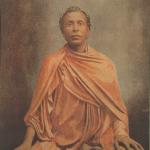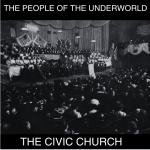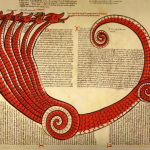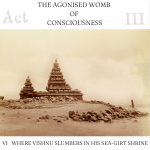It’s no secret that Christianity within the United States is evolving. In a recent study by the PEW Research Center, just 65% of American adults describe themselves as Christians when asked about their religion, down 12% over the past decade. The religiously unaffiliated, who describe their religious identity as atheist or agnostic, now reaches 26%, up from 17% in 2009. This disillusionment with Christianity stems from perceived dogmatic obedience to rigid doctrines and a lack of direct experience with the Divine within the religious framework.
My own spiritual path faced some discontentment with traditional Christianity. Like millions of other spiritual seekers, I could not reconcile the peaceful and loving Jesus with the angry and vengeful God found in much of the Abrahamic religions. What I didn’t realize at the time was the vast gulf between the exoteric and esoteric, and sadly, I set aside Jesus for several years.
I began studying other spiritual traditions, particularly those of the East that promised, or at least claimed, a path to direct experience with the Divine. However, I continually yearned to heal my relationship with Jesus but didn’t have the tools or knowledge to do so. While toggling between various spiritual traditions, I stumbled across a corner of Christianity that I had never explored before – Christian mysticism. This esoteric tradition found within Christianity represents a spiritual approach that, like Eastern traditions, emphasizes a personal experience with Divinity in order to build a deeper union with God through contemplation and inner transformation.

Finding My Mystic
In my studies of various Christian mystics like Rudolf Steiener, Meister Eckart, and St. Teresa of Ávila, I came across the writings of a Greek mystic from Cypress named Stylianos Atteshlis, or called simply Daskalos by his followers. Touted by many as the greatest Christian mystic of the 20th century, I was surprised that I had never heard of him. Daskalos began his healing and teaching career at age seven in 1919. Over the decades thousands of people experienced profound spiritual awakenings through his teachings and many experienced miraculous healings under his hands, including devastating diseases such as cancers.
Daskalos’ inner teachings were deeply rooted in esoteric Christianity, which he also called Christian Kabbalah. He taught that the roots of Kabbalah went back to ancient Egyptian mysticism and was incorporated into Judaism by Moses, who himself was trained in the temples of Egypt. Daskalos was known for his profound understanding of the human energy system (called chakras in the East), healing techniques and the spiritual evolution of humanity, leaving an indelible mark on the world of mysticism. As I devoured everything written by or about Daskalos and explored the other Christian mystics, it provided me with a catalyst for seeking a renewed and authentic connection with Jesus.
Freedom from Dogma and Formality
Christian mysticism emphasizes a more flexible and open approach to religious doctrines and beliefs. It removes the ecclesiastical middleman and provides a refreshing approach that resonates with those who feel stifled by heavy-handed orthodoxy. Mysticism prioritizes the inner journey over rigid adherence to dogma, providing flexibility that liberates individuals from the constraints of formal religious structures, allowing them to experiment and explore their faith in a more genuine, intuitive, and customized manner. It has the transformative power to heal and rejuvenate individuals who have been harmed by the traditional faith of their fathers.

Integration of Mind, Body, and Spirit
Christian mysticism places emphasis on the integration of the mind, body, and spirit in the pursuit of spiritual growth. Contemplative practices range from simple prayerful meditation of Holy Scripture called Lectio Divina to focused breathwork to contemplation on the presence of God. These practices are designed to evoke ecstatic visions of the soul’s mystical union with the Divine. They enable individuals to engage with their beliefs on multiple levels of consciousness, and discover the beauty and depth of Jesus’ teachings beyond mere intellectual understanding and into the experiential sphere.
Modern Mysticism
There is a growing body of contemporary teachers in Christian mysticism, including scholars like Thomas Merton, Richard Rohr, and Cynthia Bourgeault, who explore its principles and practices. Christian mysticism also intersects with other mystical traditions, such as Sufism in Islam and Kabbalah in Judaism, and even touches the edges of Buddhism and Hinduism. Interfaith dialogue and exploration of mystical experiences is becoming increasingly common, particularly among younger generations who have abandoned traditional religious systems.
By engaging Christian mysticism, one can tame the ego and find the solace and peace needed to let go of past religious grievances and resume their spiritual journey. This inner healing is perhaps the most important and vibrant fruit born by the tree of mysticism, setting the stage for a renewed relationship with God, a new baptism that fosters forgiveness, acceptance, and a sense of spiritual wholeness.









